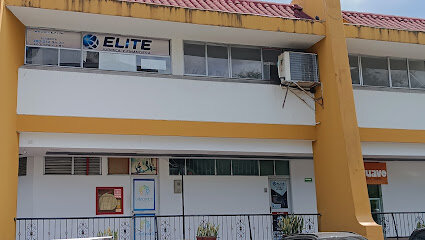Best Native People Lawyers in Villavicencio
Share your needs with us, get contacted by law firms.
Free. Takes 2 min.
List of the best lawyers in Villavicencio, Colombia
About Native People Law in Villavicencio, Colombia
Villavicencio, the capital of the Meta department, is a region where Indigenous communities have lived for generations. These groups, known as Native People or pueblos indígenas, have distinct legal rights recognized by the Colombian Constitution and specific statutes. The law recognizes their autonomy, collective property rights, and cultural traditions. In Villavicencio, several Indigenous communities work to preserve their lands, languages, and practices while interacting with municipal and departmental authorities. Navigating the complex legal landscape surrounding Indigenous rights often requires specialized knowledge due to the intersection of national, departmental, and Indigenous norms.
Why You May Need a Lawyer
There are many situations where Native People or those assisting them may need legal advice or representation in Villavicencio. Some common issues include:
- Land and territorial disputes involving ancestral territories, titles, or trespassing
- Conflicts with local or national authorities regarding autonomy or self-governance
- Defense of cultural rights and traditional practices
- Negotiations with oil, mining, or agricultural companies interested in local resources
- Issues related to the delivery of public services (education, health, infrastructure) in Indigenous territories
- Enrollment or recognition as a member of an Indigenous community
- Criminal or civil cases with culturally specific considerations
- Consultations regarding government programs or benefits intended for Indigenous groups
- Seeking restoration or compensation for past injustices
Local Laws Overview
Colombia has a robust legal framework recognizing and protecting the rights of Native People, with several national statutes applying locally in Villavicencio. Key aspects include:
- The 1991 Constitution explicitly protects the cultural and territorial rights of Indigenous peoples
- Law 21 of 1991 ratifies the International Labour Organization’s Convention 169 on Indigenous and Tribal Peoples
- Indigenous territories have legal status as collective property and may have their own internal authorities and regulations
- The requirement of prior consultation (consulta previa) for any development project or legislative measure that may affect Indigenous communities, as outlined in Law 21 and Constitution articles
- Indigenous courts (jurisdicción especial indígena) may adjudicate matters among members under their customs, as long as they adhere to basic rights guaranteed by the Constitution
- Recognition of Indigenous languages and traditions
- Policies from the Ministry of the Interior and local entities directed specifically to Native People’s communities and their rights
In Villavicencio, local authorities also work with the Consejo Regional Indígena del Meta (CRIM) and other community organizations. Laws at the municipal level must align with national protections for Indigenous rights.
Frequently Asked Questions
Who is recognized as an Indigenous person in Villavicencio?
Recognition is based on cultural, linguistic, and self-identification criteria, determined by community consensus and enrollment in official registers.
What is ‘consulta previa’ and who is entitled to it?
Prior consultation means the government and companies must inform and consult Native People before taking actions that affect their territories or cultures. Only officially recognized Indigenous communities are entitled to it.
Can Native People own land collectively?
Yes, Colombian law recognizes collective property rights for Indigenous territories, distinct from individual land ownership.
What rights do Native People have regarding education and language?
Indigenous peoples have the right to intercultural education respecting their languages and traditions. Official policies promote the preservation and teaching of Indigenous languages.
How can a dispute between two Indigenous people be resolved?
Disputes may be addressed through Indigenous courts or traditional authorities, following internal customs, as long as constitutional guarantees are respected.
What happens when state and Indigenous laws conflict?
In Colombia, Indigenous courts have jurisdiction within their territories, but must align with the Constitution’s fundamental rights. Complex conflicts may require constitutional review.
Is it possible for non-Indigenous people to live in Indigenous territories?
Non-Indigenous people can live in these areas only with the community’s permission and according to internal regulations and national laws.
Are there government benefits specifically for Native People in Villavicencio?
Yes, there are welfare, education, health, and land programs administered by national and local governments for Indigenous communities.
What should I do if my territory is threatened by a development project?
Seek legal advice immediately, request a prior consultation process, and involve the relevant Indigenous authorities and state agencies.
Where can I get free or low-cost legal assistance as a member of a Native People?
You can contact the Defensoría del Pueblo, local Indigenous organizations, or university legal clinics for free or subsidized advice.
Additional Resources
Several organizations and government bodies can provide information or assistance in Villavicencio:
- Consejo Regional Indígena del Meta (CRIM) - Regional council coordinating Indigenous rights and advocacy
- Defensoría del Pueblo (Ombudsman’s Office) - Offers legal protection and human rights advocacy
- Unidad de Restitución de Tierras - Assists with land restitution and property rights
- Personería Municipal de Villavicencio - Local ombudsman for citizen rights, including Indigenous issues
- Ministerio del Interior - Dirección de Asuntos Indígenas - National policy development and protection for Indigenous groups
- Universidad de los Llanos - Law faculties may have legal clinics or projects focused on Indigenous rights
Next Steps
If you believe you need legal assistance relating to Native People in Villavicencio, follow these steps:
- Gather all relevant documents, including certificates of Indigenous membership, land titles, or correspondence with authorities.
- Contact your local Indigenous organization or legal authority, such as the CRIM or Personería Municipal.
- Request a consultation with a lawyer experienced in Indigenous law or human rights.
- If your case involves land or prior consultation, act quickly - legal processes often have strict deadlines.
- Keep a written record of all communications and official decisions.
- Continue seeking advice from trusted community elders and representatives to ensure decisions align with both communal interests and legal obligations.
Timely and culturally appropriate legal guidance can be essential to upholding your rights as a member of a Native People in Villavicencio, Colombia.
Lawzana helps you find the best lawyers and law firms in Villavicencio through a curated and pre-screened list of qualified legal professionals. Our platform offers rankings and detailed profiles of attorneys and law firms, allowing you to compare based on practice areas, including Native People, experience, and client feedback.
Each profile includes a description of the firm's areas of practice, client reviews, team members and partners, year of establishment, spoken languages, office locations, contact information, social media presence, and any published articles or resources. Most firms on our platform speak English and are experienced in both local and international legal matters.
Get a quote from top-rated law firms in Villavicencio, Colombia — quickly, securely, and without unnecessary hassle.
Disclaimer:
The information provided on this page is for general informational purposes only and does not constitute legal advice. While we strive to ensure the accuracy and relevance of the content, legal information may change over time, and interpretations of the law can vary. You should always consult with a qualified legal professional for advice specific to your situation.
We disclaim all liability for actions taken or not taken based on the content of this page. If you believe any information is incorrect or outdated, please contact us, and we will review and update it where appropriate.









